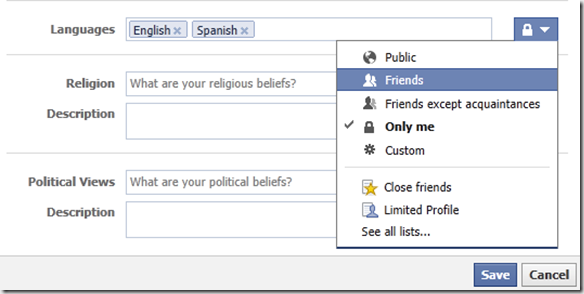Why do we share some posts and ignore others on Facebook? How does a simple status update become a meme?
Facebook has collected a huge amount of behavioural data. We find something interesting, share it with our friends and our key phrases for this event are watched by the data science team.
Lada Adamic and Thomas Lento from Facebook, Eytan Adar from the School of Information, EECS, University of Michigan and Pauline Ng from the Genome Institute of Singapore have been looking at how textual status updates are replicated across the social networking platform.They have published their findings in a note on the Facebook Data Science page.
Take these status updates for example:
1: The girl you just called fat? She has been starving herself & has lost over 30lbs. The boy you just called stupid? He has a learning disability & studies over 4hrs a night. The girl you just called ugly? She spends hours putting makeup on hoping people will like her. The boy you just tripped? He is abused enough at home. There’s a lot more to people than you think. Put this as your status if you’re against bullying.
2: Please copy & paste this to your status if you are constantly being asked to copy & paste something to your status by friends who copy & paste things to their status. Many people won’t copy & paste this, but my true sarcastic friends will copy & paste it because they know this was copied & pasted from a dear friend in need of more stuff to copy & paste. Thank you and don’t forget the heart ♥.
3: “No one should die because they cannot afford health care, and no one should go broke because they get sick. If you agree, post this as your status for the rest of the day”.
You have probably seen these status updates – or a variant of these updates on Facebook. The researchers traced 121,605 variants of status update number three and discovered 1,163 memes propagating across Facebook.

(Image from Lada Adamic Ignite NewsFoo 2011 talk)
The results are interesting – especially when similarities are drawn with evolution of genes over time compared with the evolution of memes on Facebook.
90 percent of us will copy a status update exactly as it appears when we repost it on Facebook. The other 10 percent of us will modify the text slightly. (Facebook made it harder to modify text when it introduced the share button in April 2009).
What is more interesting is that some modified text (highlighted in red above) is more “attractive” and is more likely to be shared.
“Paste if you agree”, “See how many people” and “please post this as” phrases are much more likely to be shared than phrases without this type ofinstruction in the status.
Guilt is a powerful emotion. Meme number one above tweaks our emotions and makes us feel obliged to share the post. We are told that only our real friends will actually bother to share the post. There are lots of emotional heartstring tugging here.
Unless you copy and paste this post within 5 minutes, 11 minutes, 19 minutes or you will be unlucky. Money will not come to you. You will not get your wish. Boo hoo.

Other information surfaces about the political leanings of the Facebook community. Take phrase number three and its variants. See how the variants are propagated across the Facebook network:

Variants of these phrases appeared according to the average political bias of posters (-2 very liberal, +2 very conservative).
This information gives quite an insight into the social ties we have on Facebook. We transmit interesting and relevant ideas across Facebook and our friends pick up the themes that resonate and propagate them further.
Some images that we share are visual representations of text memes – images with paragraphs of text that should be shared. We are exhorted that these images are true, or funny, or awesome or cute.
But the content has got to be interesting too. We will not copy and paste status updates unless they are emotionally relevant to us. Messages that mention our partners, children fathers and especially our mothers are much more likely to be shared.
The image of President Obama hugging his wife with the comment “Four more years” has been shared 600,000 times to date. Half of these shares were reshares. For example, a user saw and shared the photo as the result of another user sharing the image.
Before the share button appeared in 2009, Status updates could be a maximum of 420 characters, up from 160 characters in 2008. The status update limit was increased to 5000 characters in September 2011 and then upped to over 60,000 characters in November 2011.
Remember the “Facebook will start to charge for its services” meme? This meme was copied over 5,000 times in September 2011. Parody memes too get shared across the internet. Some parodies are shared more broadly than the original meme.
Memes have been going around since before Facebook even existed. Snopes.com has collected examples of email and online scares since its inception 1995. Memes can exist for years, can resurface from time to time and evolve into completely new memes.
Next time you reach for the share link, just know you are adding to Facebook’s massive data store and propagating a (perhaps old) meme even further along the line…
Eileen Brown is a social media strategist and consultant at Amastra, a columnist at ZDNet and author of Working The Crowd: Social Media Marketing for Business. Connect with Eileen on Twitter and Google+ or contact her to find out how she can elevate your brand and help your business become more social.

 The Send to Mobile feature enables developers to encourage more app downloads.
The Send to Mobile feature enables developers to encourage more app downloads. 











